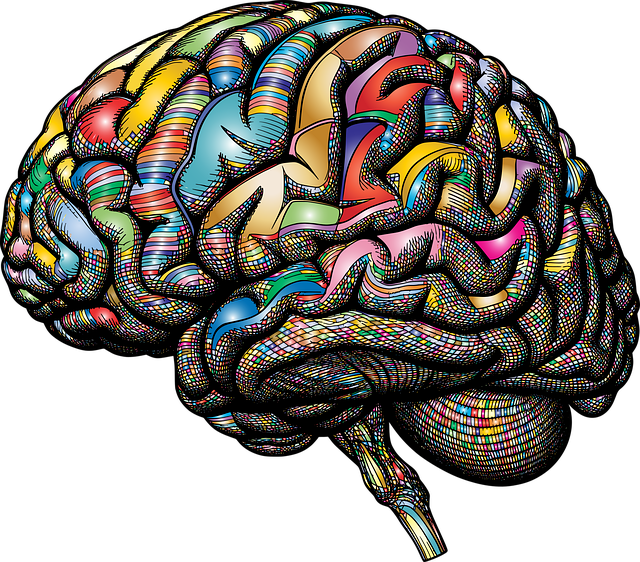Emotions can be overwhelming, impacting overall well-being. Englewood Anger Management Therapy (EAMT) provides strategies like CBT and mindfulness exercises to teach individuals how to manage moods effectively. EAMT reduces mental illness stigma, enhances emotional intelligence, and improves relationships through education and coping mechanisms. Incorporating practices like meditation and physical activity also lessens stress and increases stability. For persistent emotions disrupting daily life, seek professional help from specialists like EAMT. Burnout prevention is crucial for healthcare providers in high-stress fields.
Mood regulation is a vital skill, and understanding how to manage our emotions effectively can significantly enhance our overall well-being. This article explores various strategies for mood regulation, with a special focus on the role of Englewood Anger Management Therapy. We’ll delve into practical techniques you can apply daily, as well as provide guidance on when to seek professional help. Discover how methods like Englewood Anger Management Therapy can offer long-lasting benefits in managing and improving your emotional health.
- Understanding Mood Regulation: The Role of Englewood Anger Management Therapy
- Practical Strategies for Daily Application
- When to Seek Professional Help: Identifying Red Flags and Resources
Understanding Mood Regulation: The Role of Englewood Anger Management Therapy

Understanding Mood Regulation involves recognizing that emotions are a natural part of life, but when they become overwhelming or persistent, it can impact overall well-being. This is where strategies like Englewood Anger Management Therapy (EAMT) play a crucial role in helping individuals manage and regulate their moods effectively. EAMT is designed to teach valuable skills for emotional regulation, enabling people to cope with intense emotions constructively.
By participating in mental health education programs that incorporate techniques from EAMT, individuals can learn to identify triggers, understand the connection between thoughts and feelings, and develop healthier responses to stress and anger. These programs aim to reduce the impact of mental illness stigma by fostering self-awareness and promoting positive coping mechanisms. Through practice, these strategies can enhance overall emotional intelligence, leading to improved mental health and better relationships.
Practical Strategies for Daily Application

Incorporating effective mood regulation strategies into daily life is a powerful tool for enhancing mental wellness and overall well-being. Simple yet practical techniques like mindfulness meditation, deep breathing exercises, and regular physical activity can significantly impact stress levels and emotional stability. For instance, engaging in brief mindfulness practices throughout the day—such as focusing on sensory experiences during routine tasks—can help individuals stay grounded and calm.
Additionally, communication strategies play a vital role in managing moods and conflicts. Encouraging open dialogues and constructive ways to express emotions can foster healthier relationships and improve emotional resilience. Organizations like Englewood Anger Management Therapy offer valuable resources and workshops that teach effective communication skills, stress management techniques, and coping mechanisms tailored to individual needs, ultimately promoting positive mental health outcomes.
When to Seek Professional Help: Identifying Red Flags and Resources

If your mood regulation strategies aren’t effectively managing your emotional well-being or if you’re experiencing persistent feelings of sadness, anxiety, or anger that interfere with daily life, it’s important to recognize when to seek professional help. While occasional fluctuations in mood are normal, prolonged or intense emotional distress may be a red flag for underlying mental health issues.
Englewood Anger Management Therapy, for instance, specializes in assisting individuals grappling with anger-related challenges. They offer evidence-based practices tailored to your specific needs, encompassing techniques like Cognitive Behavioral Therapy (CBT) and mindfulness exercises. Additionally, Mental Wellness Journaling Exercise Guidance can empower you to track your emotions, identify triggers, and gain insights into managing them more effectively. Burnout Prevention Strategies for Healthcare Providers are also crucial, as professionals in high-stress fields may require specialized support to maintain resilience and emotional balance.
Mood regulation is a vital skill, and with the right tools, anyone can learn to manage their emotions effectively. Englewood Anger Management Therapy offers a comprehensive understanding of mood regulation, providing practical strategies that can be applied daily. By recognizing red flags and knowing when to seek professional help, individuals can take control of their emotional well-being. Incorporating techniques like those taught through Englewood Anger Management Therapy allows for better stress management, improved relationships, and an overall enhanced quality of life.











